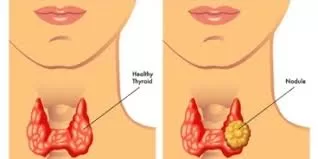A groundbreaking study published in JAMA Cardiology suggests that genetic scoring could play a crucial role in predicting how individuals with hypertension respond to certain blood pressure medications, potentially revolutionizing personalized treatment strategies.
Researchers from the University of Alabama at Birmingham focused on Black individuals with hypertension, analyzing data from over 6,000 participants. By calculating a systolic blood pressure polygenic risk score (ΔSBP), the study sought to identify genetic markers that could help predict treatment outcomes and the likelihood of developing treatment-resistant hypertension.
The results were striking. Participants in the lowest 20% of ΔSBP experienced an average systolic blood pressure reduction of -10.01 mm Hg after six months of chlorthalidone treatment. In contrast, individuals in the middle 20% showed a modest reduction of -6.57 mm Hg. These findings suggest that genetic predisposition, as determined by ΔSBP, may significantly influence how well a patient responds to this common blood pressure medication.
The study also highlighted the potential risks for patients with higher ΔSBP scores. Those in the top 20% were found to have a 67% greater likelihood of developing treatment-resistant hypertension compared to individuals in the median ΔSBP group, emphasizing the need for alternative treatment strategies for this population.
This research underscores the importance of personalized medicine, particularly in managing chronic conditions like hypertension, which affects millions worldwide. By incorporating genetic risk scores into clinical decision-making, healthcare providers could tailor drug choices to each individual, potentially improving outcomes and reducing the incidence of treatment resistance.
While promising, the researchers call for further studies to validate these findings across diverse populations and with various antihypertensive treatments to ensure the broader applicability of genetic scoring in hypertension management.
Disclaimer: The findings of this study are based on an analysis of data from Black individuals with hypertension and may not be applicable to all populations. Further research is needed to confirm these results in different demographic groups and treatment settings.











